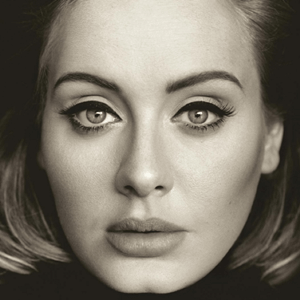Let’s be real: the last few weeks have been rough. I think everyone could use a nice, easy opinion that we can all agree on. Here’s one: Beyoncé should have won the Grammy for album of the year.
I mean, come on. Do I even need to explain why? Anyone who listened to or watched Lemonade knows it was a pop culture phenomenon. Honestly, anyone who didn’t still knows, thanks to news coverage analyzing the album and its accompanying video narrative for months after its release.
The album started a global discussion of race, feminism and womanism. The cohesiveness, the complexity and the symbolism in Lemonade’s combination of music, poetry, imagery and documentary was literally breathtaking. The whole country felt it.
Adele’s 25, which one this year’s album of the year, was very nice. It was a good album, but it lacked the sweeping cultural impact of Lemonade. It was simply a nice, top-selling adult contemporary album from a very talented artist who has always been a favorite at the Grammy Awards.
The judges acted predictably when they chose a safe, white album of the year instead of one widely considered iconic for its celebration of black womanhood. After all, the Grammys has long faced criticism for under-representing black artists. The last black woman to win album of the year was Lauryn Hill almost 30 years ago.
Adele, however, showed every white woman in the audience what intersectional feminism looks like, in a move that made her, Beyoncé and every single person watching at home tear up a little (just admit it).
“I can’t possibly accept this award, and I’m very humbled and I’m very grateful and gracious, but my artist of my life is Beyoncé and this album, to me, the Lemonade album, was so monumental. Beyoncé, you are our light,” Adele said during her acceptance speech. “And the way that you make me and my friends feel, the way you make my black friends feel, is empowering. You make them stand up for themselves and I love you. I always have and I always will.”
Adele continued to lift up Beyonce’s work during her time with the press backstage. “My Album of the Year is Lemonade,” she reportedly said. “For her to make such relevant music for that long of a period … What the fuck does she have to do to win album of the year? It was another side of her. Obviously, the visual is very new and the Grammys are very traditional, but this year I thought would be the year they go with the tide.”
The internet is joking about how Adele basically pulled a 2009 Kanye on herself, but what she did is very important. Of course, Lemonade will never have a chance to win a Grammy for album of the year again. But Adele’s decision to publicly acknowledge her privilege, and how that privilege robbed her sister of a well-deserved honor, should serve as an example for those of us with various types of privilege to copy in our everyday lives.
Adele’s speech reminded us of the importance of calling out social injustices when we see them in action at home, work, school or online. Of course not every white person is personally responsible for racial bias in huge industries like music, but those industries won’t be forced to improve until every person makes it clear that we care, that we see what’s going on.
Adele can’t help it if she won a Grammy thanks to a system that rewards art primarily for being white, comfortable and commercially successful. She worked hard on her album and it certainly deserves praise. But had Adele simply accepted the award, her silence would have implied a tacit agreement she deserved it over Beyoncé, that her win had nothing to do with the status quo, with the comfort of older, traditionalist white people. As she said herself, she was rooting for Beyoncé (and the black women her album represents), too.
By acknowledging how privilege and bias affect almost every aspect of everyday life, Adele started a national conversation about race, gender and recognition and inclusion in the “biggest night in music,” one that may end up forcing the Grammys to finally “go with the tide,” as she put it, or run the risk of drowning.
Julia O’Donnell (julesyann19@gmail.com) is a senior majoring in journalism and strategic communication.


